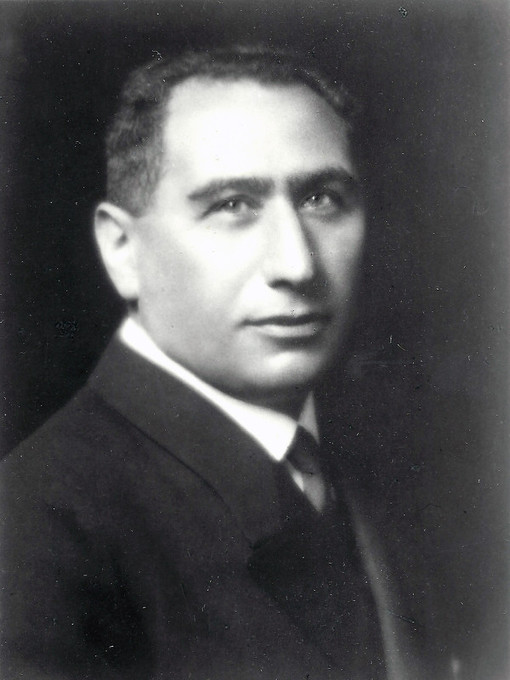Lipót (Leopold) Aschner was born on January 27, 1872, as the first son in a Jewish family with nine children, in Nové Sady (Assakürt), the northern part of Hungary (today Slovakia). After only eight years in school, Aschner had to start his adult life and support his family.
He joined the ancestor of Tungsram in 1892 as part of the commercial staff and climbed up the ladder from sales representative in Russia, over commercial director in 1908, to CEO in 1921. In 1944, he was brought to the concentration camp in Mauthausen. Tungsram bought him free. Aschner lived in Switzerland, returned to Hungary in 1947 and died in Budapest, January 18, 1952.

Aschner led Tungsram in new directions. First, he recognized the strategic importance of innovation and set up a research laboratory following the example of General Electric and Siemens. The laboratory was crucial for Tungsram’s participation in setting technical standards in the lighting and telecommunication industry. Second, he consequently extended the network of Tungsram-factories abroad. In the interwar era, that was indispensable for market entry due to growing barriers to international trade. Third, Aschner followed the example of leading American multinationals in providing for workers’ needs, such as building a canteen, changing rooms, showers, and sports facilities, or in supporting the Tungsram staff’s cultural associations. For example, his patronage was crucial for the sport clubs in Újpest (UTE, UFC). He certainly was a man for big projects. This management style set Tungsram apart from most Hungarian companies and was seminal for Tungsram’s participation at setting the rules on the market through the international lamp and radio valve cartels with General Electric, Philips, Osram and Telefunken.


